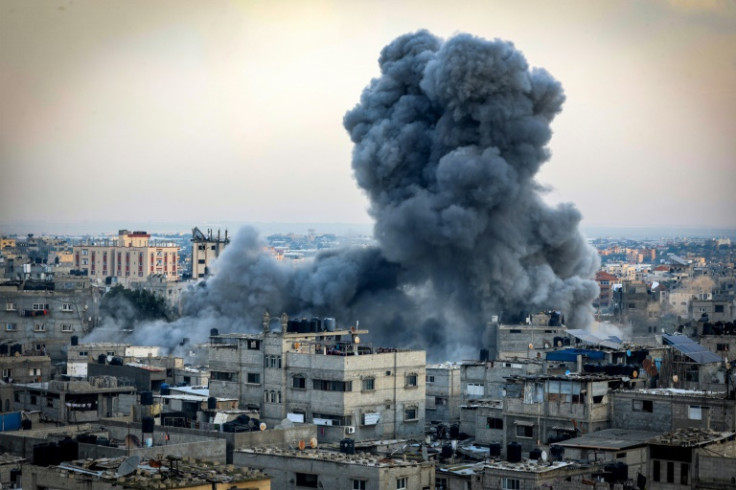Palestinian Economy Severely Impacted By Israel-Hamas War: World Bank

The Israel-Hamas war in Gaza is having a severe impact on the Palestinian economy, the World Bank said Tuesday, adding that a sharp economic contraction is likely this year and next.
"The loss of life, speed and extent of damages to fixed assets and reduction in income flows across the Palestinian territories are unparalleled," the World Bank said in a statement.
The conflict, now dragging into its third month, has resulted in the death of more than 18,400 people in Gaza, the majority of them women and children, according to the Hamas-run health ministry.
The violence was sparked by Hamas' cross-border attacks on October 7 that killed 1,200 people, according to Israeli figures, and saw around 240 hostages taken back to Gaza.
The UN estimates 1.9 million of Gaza's 2.4 million people have been displaced by the war, half of them children.
UN agencies and aid groups fear the Palestinian territory will soon be overwhelmed by starvation and disease, and are pleading with Israel to boost efforts to protect civilians.
In a new analysis published Tuesday, the World Bank estimated that, as of mid-November, around 60 percent of information and communication infrastructure as well as health and education facilities had been damaged or destroyed.
And 70 percent of commerce-related infrastructure had been crippled or ruined.
Almost half of all primary, secondary and tertiary roads were also damaged or destroyed, and more than half a million people were living without a home due to the conflict.
Beyond the immediate human cost, the Israel-Hamas conflict has also "severely impacted the Palestinian economy," the World Bank said.
Gaza's contribution to the overall Palestinian economy, which includes the West Bank, had already shrunk from around 36 percent in 2005 to just 17 percent last year, according to the Palestinian Central Bureau of Statistics.
Israel's fierce response to the Hamas attacks on October 7 has pushed Gaza's unemployment rate up to around 85 percent, while its decision to shut the door to Palestinian workers from the West Bank has put almost 200,000 people out of work.
Despite Gaza's small contribution to the economic figures, the World Bank now expects the overall Palestinian economy to contract by 3.7 percent this year, down sharply from its pre-war forecast of a 3.2 percent increase.
Next year, the situation is expected to be even worse.
Whereas the World Bank previously anticipated growth of 3.0 percent in 2024, it now expects an overall contraction of 6.0 percent -- on the assumption that the severity of the conflict decreases next year.
If the war drags on, the economic impact could deteriorate further.
Following the onset of the war, prices in Gaza jumped by 12 percent, on average, in October, the Bank said, reflecting "pent-up demand for products that are increasingly difficult to find on the local markets."
By contrast, consumer inflation in the West Bank rose by just 0.1 percent over the same period.
In response to the conflict, the World Bank unveiled financial support on Tuesday to provide "emergency relief for the affected people of Gaza."
The development lender announced an additional $20 million in funds for medical care, humanitarian needs, and financing for food vouchers and parcels in the besieged Palestinian territory.
This comes on top of the $15 million it has already delivered, it added.
© Copyright AFP 2025. All rights reserved.





















